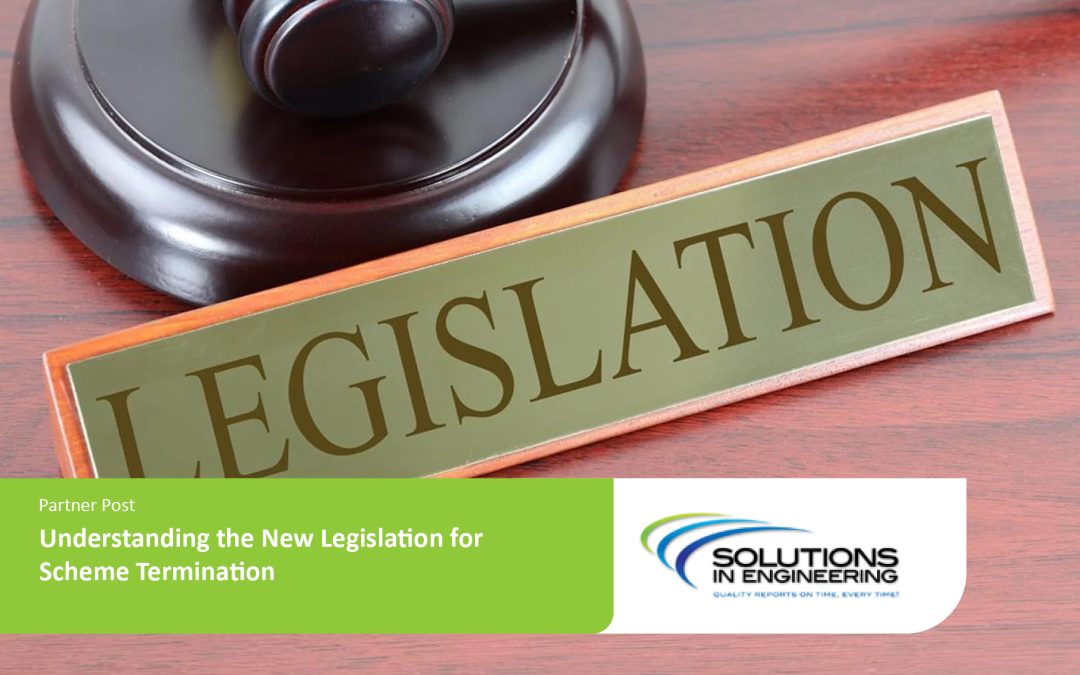Effective from May 1st, 2024, the newly introduced Body Corporate and Community Management Act Amendment Bill 2023 (BCCMOLA), terminating a scheme by an economic reasons resolution poses significant obstacles for bodies corporate and is far from straightforward. Here’s an in-depth look at what you need to know.
The Basics of Scheme Termination
Under the BCCMOLA, basic community titles schemes (i.e., schemes that are not in a layered arrangement) can be terminated if specific conditions are met:
- Agreement on Economic Reasons: The body corporate must agree that there are economic reasons for the termination.
- Evidence of Economic Reasons: These reasons must be supported by evidence, in the form of a pre-termination report.
- Majority Support: At least 75% of lot owners must support the termination.
Before you start evaluating if you are ready to terminate your scheme, the questions that need answering are:
- What is the current value of the existing improvements on your land?
- Are the costs of your building remediation and maintenance economically viable?
- How much would a property developer pay for the underlying land?
Collecting this information not only provides clarity on the feasibility of terminating your scheme but also helps in making an informed decision that aligns with the best interests of all lot owners.
Reasons for Scheme Termination
There are several reasons why a community titles scheme might be terminated, including:
- Redevelopment: Owners may decide to terminate the scheme to redevelop the property, either due to aging infrastructure or the potential for higher property values through new construction.
- Disrepair: If the property is in significant disrepair and the cost of maintenance is too high, terminating the scheme may be a practical solution.
- Sale of Entire Property: In some cases, a developer or investor may purchase all the units within the scheme, necessitating the termination of the existing arrangement.
Requirements Posed by the New Legislation
The BCCMOLA introduces numerous requirements in terminating a scheme, including:
- Pre-Termination Report: A pre-termination report consisting of 5 individual reports which must be completed prior to the termination plan and sourced by separate professionals.
- Economic Reasons Resolution: An economic reasons resolution must be passed during an EGM (extraordinary general meeting) by majority resolution (over 50%) with one vote exercised by each lot.
- Objection Period: any party believes the economic reasons resolution should not have been passed, they may apply for an order of a specialist adjudicator to resolve the dispute.
- Termination Plan Resolution: A termination plan resolution also must be passed during an EGM by majority resolution (over 50%) with one vote exercised by each lot.
- Notification and Voting: A copy of the termination plan must be given to all lot owners before the termination resolution vote occurs. A termination resolution must then be passed at another EGM if 75% or more of all lot owners vote for the motion, to proceed with the plan.
- Extended Timeline: An approximate timeline of no less than 500 days from the day the termination is raised to the day of termination.
- Consultants: The process involves consultations with various professionals, including surveyors and structural engineers.
- Extensive Notices and Meetings: Significant notice to owners and related entities before each meeting, Numerous general meetings (EGM’s).
Alternative Pathways to Terminate
Given the complexities and substantial costs associated with terminating a community titles scheme under the new legislation, exploring alternative avenues is crucial. One such pathway is termination by resolution without dissent. This approach allows a scheme to be terminated if no lot owner votes against the motion, significantly simplifying the process and avoiding the costly procedures tied to economic reasons.
For expert assistance and guidance, call Solutions in Engineering on 1300 136 036 or visit www.solutionsinengineering.com.
